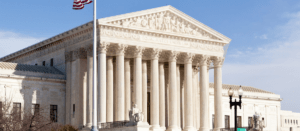It is a common quote from Dr. Seuss’ Horton Hears a Who! often seen at pro-life rallies, “A person’s, a person no matter how small.” It is powerful because it is true. A recent Alabama State Supreme Court decision (LePage v. Mobile Infirmary Clinic, Inc.) showcases similar features. It is powerful because of its simplicity. The Court held a child is protected in Alabama law “without exception based on developmental stage, physical location, or any other ancillary characteristics.”
Three couples lost their embryos stored in a center in Mobile due to negligence. The couples sought relief in court and ultimately won at the Supreme Court after lower courts had ruled against them, saying that the embryos were not covered as children under Alabama law.
The defendants wanted the Alabama Supreme Court to create “an unwritten exception for extrauterine children in the wrongful-death context.” It is refreshing to see a Court refuse to re-write law by judicial fiat in order to promote a particular policy outcome.
Associate Justice James Mitchell, writing for the majority, makes clear, “All parties to these cases, like all members of this Court, agree that an unborn child is a genetically unique human being whose life begins at fertilization and ends at death. The parties further agree that an unborn child usually qualifies as a ‘human life,’ ‘human being,’ or ‘person,’ as those words are used in ordinary conversation and in the text of Alabama’s wrongful-death statutes. That is true, as everyone acknowledges, throughout all stages of an unborn child’s development, regardless of viability.” The decision was 8-1 but note Judge Mitchell makes clear all members of the Court agree on that point, as do all the parties.
The Court simply follows law and logic consistently. In Alabama law, when a man murders a pregnant woman, he is charged with two murders, not just one. This is the case all over the country. Americans can see clearly that there were two lives taken in such a case. But the politics of abortion have clouded judicial judgment to such an extent that all sorts of mental contortions and exceptions are made to fit the most popular outcome.
Importantly, the Court also notes that the Alabama Constitution’s Sanctify of Life Amendment declares it is “the public policy of this state to recognize and support the sanctity of unborn life and the rights of unborn children, including the right to life” (Art. I, § 36.06). The language being so clear and unambiguous, the Court correctly upholds the principle without injecting personal preferences.
Chief Justice Tom Parker wrote a concurring opinion to expand on this issue, writing, “A good judge follows the Constitution instead of policy, except when the Constitution itself commands the judge to follow a certain policy. In these cases, that means upholding the sanctity of unborn life, including unborn life that exists outside the womb.” He explained the constitutional provision “tilts the scales of the law in favor of protecting unborn life.”
His concluding words are worth an extensive quote:
The People of Alabama have declared the public policy of this State to be that unborn human life is sacred. We believe that each human being, from the moment of conception, is made in the image of God, created by Him to reflect His likeness. It is as if the People of Alabama took what was spoken of the prophet Jeremiah and applied it to every unborn person in this state: “Before I formed you in the womb I knew you, Before you were born I sanctified you.” Jeremiah 1:5 (NKJV 1982). All three branches of government are subject to a constitutional mandate to treat each unborn human life with reverence. Carving out an exception for the people in this case, small as they were, would be unacceptable to the People of this State, who have required us to treat every human being in accordance with the fear of a holy God who made them in His image.
Only such a robust, scientific, and moral view of life is strong enough to ensure the self-evident truths that undergird our form of government that “all men are created equal, that they are endowed, by their Creator, with certain unalienable rights, that among these are life, liberty, and the pursuit of happiness” are protected for generations to come. Let’s hope other states follow Alabama’s lead.






